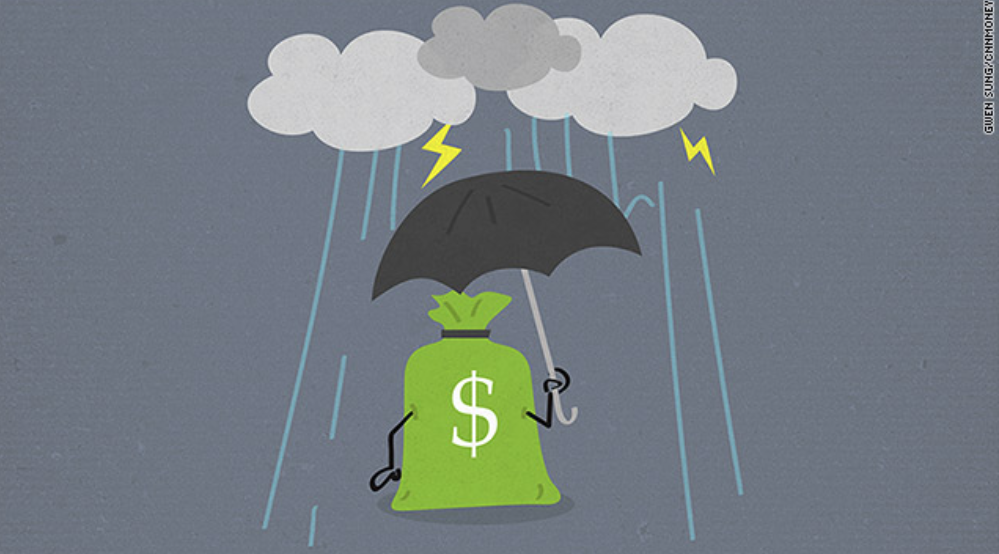CommentsLA WATCHDOG--Since 2011, the City of Los Angeles has done a reasonable job of building up its two rainy day funds, the Reserve Fund and the Budget Stabilization Fund. Nevertheless, despite record revenues, Mayor Eric Garcetti and the Herb Wesson led City Council have shortchanged the rainy-day funds by diverting money from both entities to the General Fund to pay for increased personnel costs and overly ambitious spending programs.
According to the Mayor’s Proposed Budget, the Reserve Fund will have a balance of $399 million as of July 1 while the Budget Stabilization will have a balance of $107 million. The total of these two funds will be a little more than $500 million, an amount equal to 7.7% of the General Fund budget of $6.5 billion.
But this level falls about $150 million short of the City Administrative Officer’s previous stated goal for the two rainy day funds of an amount equal to at least 10% of General Fund revenues, or $650 million.
Since Garcetti became Mayor in 2013, the City has raided the Reserve Fund for over $200 million even though revenues increased by almost $2 billion. Fortunately, the City does not have to rely on the Reserve Fund this upcoming year as projected revenues are expected to grow by 5.5% to almost $340 million.
The City is also diverting funds from the Budget Stabilization Fund which was established in 2011 when 66% of the voters approved Charter Amendment P. Under the subsequent ordinance, when the growth in seven economically sensitive taxes (Property, Utility Users, Business, Sales, Hotel, Documentary, and Parking) exceeds 3.4%, the excess will be directed to the Budget Stabilization Fund.
However, over the last three years, the Mayor and the City Council have relied on a carefully designed loophole and have diverted over $250 million from the Budget Stabilization Fund to pay for capital expenditures and infrastructure improvements. These expenditures should be paid for by on-going General Fund revenues, not money from the underfunded rainy-day funds.
More cash may have been diverted in the prior four years, but it is difficult to determine because the City does not provide readily available information.
The diversion of these funds runs contrary to the intent of Charter Amendment P. In the lead up to the 2011 vote, we were led to believe that the City would establish rainy day funds that would eventually be equal to 15% of General Fund revenues, or almost $1 billion today. But living up to their campaign promises is not one of City Hall’s virtues.
Over the next five years, the Mayor and the City Council should allocate at least $50 million a year to the two rainy day funds so they reach the 10% goal established by the City Administrative officer and the Government Officers Finance Association. This would be in addition to any excess revenues designated for the Budget Stabilization Fund.
We are experiencing a booming economy. But when the growth rate slows or goes negative and tax revenues do not meet expectations or turn down, the City may not have adequate reserves to weather the downturn, leading to lower levels of service, desperate calls for increased taxes, and lots of excuses from the Masters of the Universe who occupy City Hall.
(Jack Humphreville writes LA Watchdog for CityWatch. He is the President of the DWP Advocacy Committee and is the Budget and DWP representative for the Greater Wilshire Neighborhood Council. He is a Neighborhood Council Budget Advocate. He can be reached at: [email protected].)
-cw















